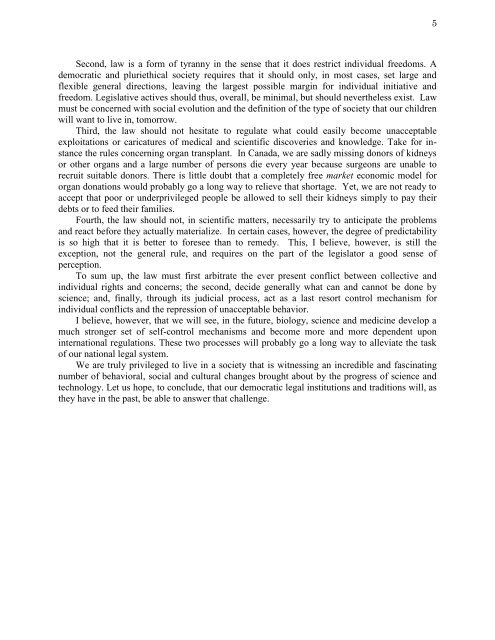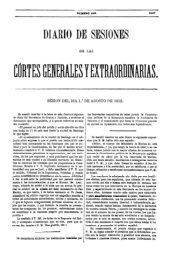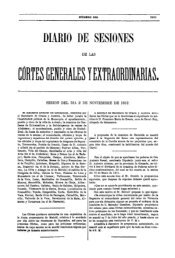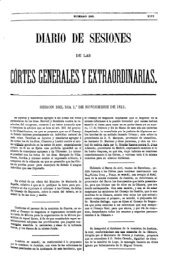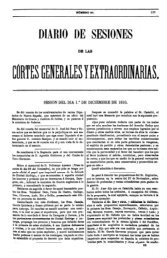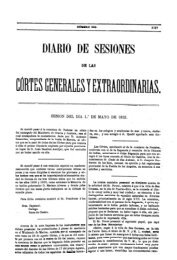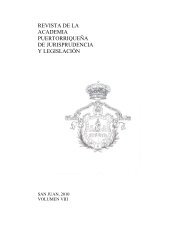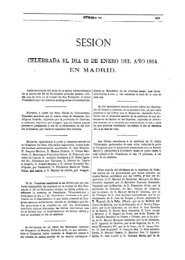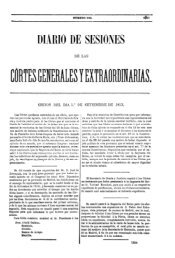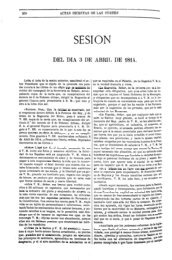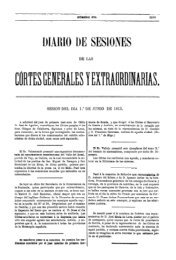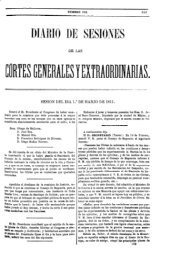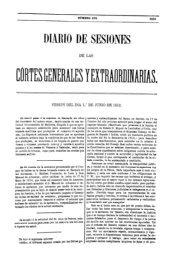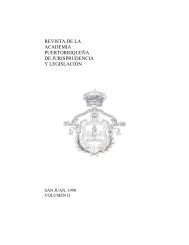Revista Volumen V - Academia Puertorriqueña de Jurisprudencia y ...
Revista Volumen V - Academia Puertorriqueña de Jurisprudencia y ...
Revista Volumen V - Academia Puertorriqueña de Jurisprudencia y ...
Create successful ePaper yourself
Turn your PDF publications into a flip-book with our unique Google optimized e-Paper software.
Second, law is a form of tyranny in the sense that it does restrict individual freedoms. A<strong>de</strong>mocratic and pluriethical society requires that it should only, in most cases, set large andflexible general directions, leaving the largest possible margin for individual initiative andfreedom. Legislative actives should thus, overall, be minimal, but should nevertheless exist. Lawmust be concerned with social evolution and the <strong>de</strong>finition of the type of society that our childrenwill want to live in, tomorrow.Third, the law should not hesitate to regulate what could easily become unacceptableexploitations or caricatures of medical and scientific discoveries and knowledge. Take for instancethe rules concerning organ transplant. In Canada, we are sadly missing donors of kidneysor other organs and a large number of persons die every year because surgeons are unable torecruit suitable donors. There is little doubt that a completely free market economic mo<strong>de</strong>l fororgan donations would probably go a long way to relieve that shortage. Yet, we are not ready toaccept that poor or un<strong>de</strong>rprivileged people be allowed to sell their kidneys simply to pay their<strong>de</strong>bts or to feed their families.Fourth, the law should not, in scientific matters, necessarily try to anticipate the problemsand react before they actually materialize. In certain cases, however, the <strong>de</strong>gree of predictabilityis so high that it is better to foresee than to remedy. This, I believe, however, is still theexception, not the general rule, and requires on the part of the legislator a good sense ofperception.To sum up, the law must first arbitrate the ever present conflict between collective andindividual rights and concerns; the second, <strong>de</strong>ci<strong>de</strong> generally what can and cannot be done byscience; and, finally, through its judicial process, act as a last resort control mechanism forindividual conflicts and the repression of unacceptable behavior.I believe, however, that we will see, in the future, biology, science and medicine <strong>de</strong>velop amuch stronger set of self-control mechanisms and become more and more <strong>de</strong>pen<strong>de</strong>nt uponinternational regulations. These two processes will probably go a long way to alleviate the taskof our national legal system.We are truly privileged to live in a society that is witnessing an incredible and fascinatingnumber of behavioral, social and cultural changes brought about by the progress of science andtechnology. Let us hope, to conclu<strong>de</strong>, that our <strong>de</strong>mocratic legal institutions and traditions will, asthey have in the past, be able to answer that challenge.5


